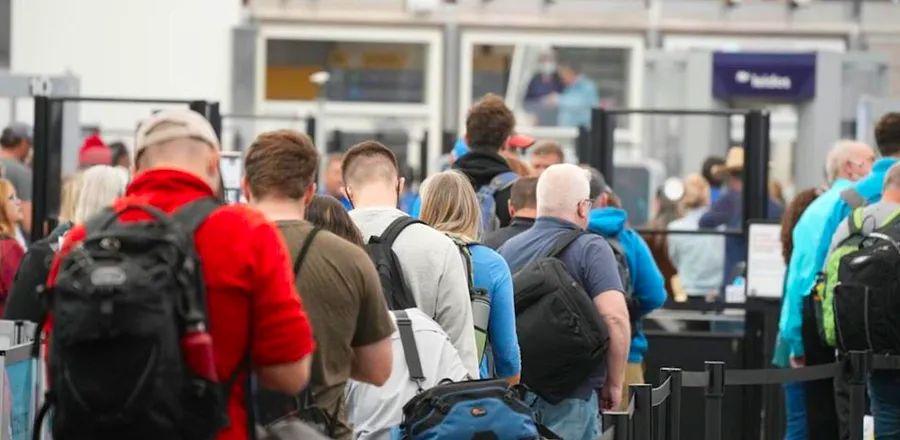The Reason Behind Over 2,800 Flight Cancellations During Memorial Day Weekend

The unofficial kick-off to summer during the Memorial Day weekend provides a concerning preview of what travelers might face in the upcoming peak vacation season.
From Thursday to Monday, U.S. airlines canceled over 2,800 flights, representing approximately 2 percent of their scheduled operations, according to FlightAware.
Delta Air Lines, typically one of the top performers, recorded the highest number of cancellations among major carriers, with more than 800 flights canceled over the five-day period.
“This was an opportunity for airlines to demonstrate that the delays from last summer would not occur again this summer, but that did not happen,” stated Helane Becker, an analyst at banking firm Cowen. She attributed the disruptions to adverse weather, air traffic control delays, crew members calling in sick, and lengthy security lines at certain airports.
“We anticipate a bustling summer and have concerns about the industry's capacity to meet the demand,” Becker stated.
When asked on Tuesday to address its weekend issues, Delta referred to a statement released the previous week, in which it acknowledged challenges such as an increase in COVID-19 cases among its workforce.
In May, Delta operated 13 percent more flights than it did the previous year, but last week it announced plans to reduce its schedules for July and August by up to 3 percent to enhance the reliability of its remaining flights. The pilots' union has indicated that it has warned the airline for months about crew shortages.
“We empathize with our customers' frustrations, particularly over the weekend,” commented Evan Baach, a Boeing 767 captain at Delta and a representative of the Air Line Pilots Association. “Delta has not adequately staffed the airline with enough pilots for the number of flights they intend to operate.”
The positive news is that flight cancellations significantly decreased on Tuesday, with FlightAware reporting only about 80 cancellations by late afternoon on the East Coast.
Predictions of a high volume of travelers over the weekend turned out to be correct. The Transportation Security Administration reported that more than 11 million individuals were screened at airport checkpoints from Thursday to Monday.
This figure was down 9 percent compared to the same days in 2019, but represented nearly a 25 percent increase from last year. Crowds of just under 2.4 million on both Thursday and Friday were nearly equal to the pandemic peak set the Sunday after Thanksgiving last year.
As a result, many flights were quite full, as airline schedules have not yet returned to pre-pandemic levels, according to data from travel research firm Cirium.
The U.S. airline industry aims to increase passenger numbers partly by lifting one of the last pandemic-related travel restrictions in the U.S. Industry representatives met with White House officials on Tuesday to reiterate their request to eliminate the requirement for travelers to test negative for COVID-19 within a day of entering the United States.
The trade organization Airlines for America stated that its member airlines project that removing this requirement would result in an additional 4.3 million international passengers over the course of a year. Airlines believe that many Americans are hesitant to travel abroad due to the risk of being stranded if they contract the virus during their trip.
Evaluation :
5/5



